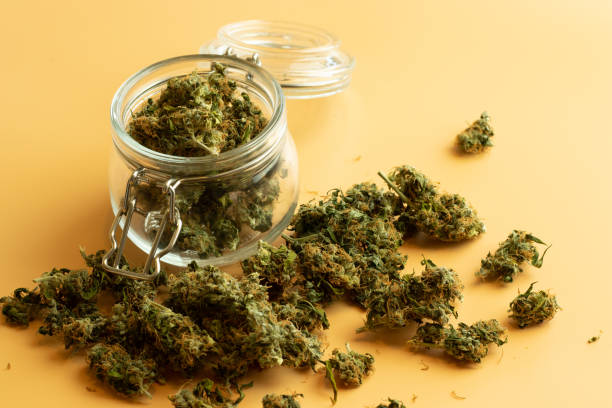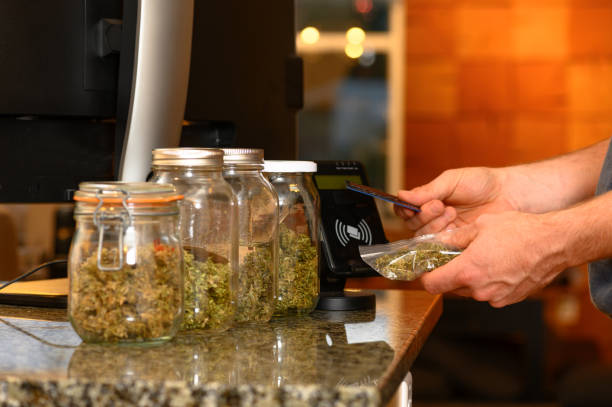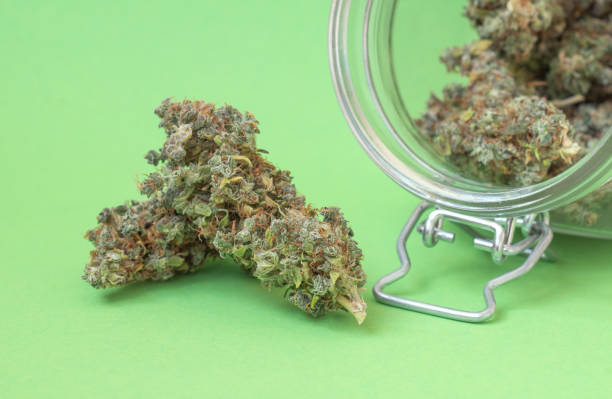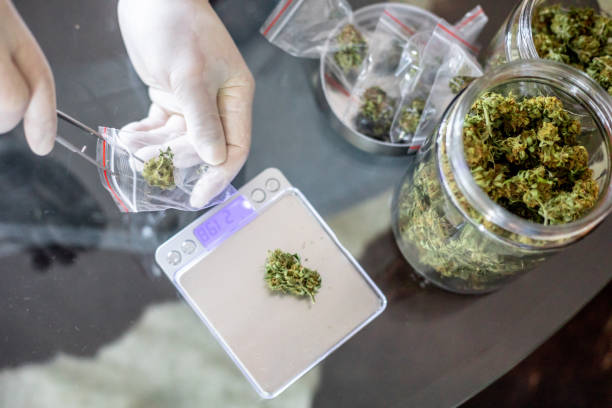

As of now, the legal status of cannabis in Florida is somewhat complicated. Medical marijuana has been legal in the state since 2016, when Amendment 2 was passed by voters. This allows individuals with qualifying medical conditions to obtain a prescription for cannabis from a licensed physician.
However, recreational use of marijuana is still illegal in Florida. Possession of small amounts of cannabis for personal use is considered a misdemeanor offense, punishable by fines and potential jail time. There have been some efforts to decriminalize possession of small amounts of marijuana, but these have not yet been successful.
In terms of cannabis tax revenue in Florida, the state does not currently have a system in place for taxing medical marijuana sales. However, there are discussions about potentially implementing a tax on recreational marijuana sales if it were to become legal in the future.
Overall, the legal status of cannabis in Florida is evolving and could change in the coming years. It will be interesting to see how this impacts potential tax revenue generated from cannabis sales in the state.
The discussion on the potential economic benefits of taxing cannabis sales in Florida is a hot topic that has been gaining traction in recent years. Many experts believe that legalizing and taxing cannabis could bring in a significant amount of revenue for the state, which could be used to fund various programs and initiatives.
One of the main arguments in favor of taxing cannabis sales is that it could help to boost the economy by creating jobs and stimulating economic growth. By legalizing cannabis, businesses would be able to operate legally, creating new job opportunities in cultivation, processing, distribution, and retail. This would not only benefit those directly involved in the industry but also have a positive ripple effect on other sectors of the economy.
In addition to creating jobs, taxing cannabis sales could also generate substantial revenue for the state government. In states where cannabis is already legal, such as Colorado and California, tax revenues from cannabis sales have exceeded initial estimates and have been used to fund education, infrastructure projects, and public health programs. By implementing a similar system in Florida, policymakers could potentially generate millions of dollars in additional revenue each year.
Furthermore, taxing cannabis sales could help to combat illegal drug trafficking by providing consumers with a safe and regulated alternative. By shifting demand from the black market to legal dispensaries, law enforcement resources could be redirected towards more serious crimes.
However, there are also concerns about the potential negative impacts of taxing cannabis sales. Some opponents argue that legalization could lead to increased drug use among young people or pose risks to public health and safety. These concerns must be carefully considered when crafting legislation around cannabis taxation.
Overall, the discussion on the potential economic benefits of taxing cannabis sales in Florida is complex and multifaceted. While there are valid arguments both for and against legalization, it is clear that this issue warrants further research and consideration by policymakers as they weigh the potential costs and benefits for their state.

Cannabis legalization in Florida has the potential to bring about a significant economic boost to the state.. With its large population and thriving tourism industry, Florida stands to benefit greatly from the legalization of cannabis for both medical and recreational use.
One major economic advantage of cannabis legalization is the creation of new jobs.
Posted by on 2024-06-18

As of now, the projected tax revenue from legalized cannabis in Florida remains uncertain.. While advocates for legalization argue that it has the potential to generate significant tax revenue for the state, there are many factors that need to be considered before an accurate prediction can be made.
One of the main arguments in favor of legalizing cannabis is its ability to bring in substantial tax revenue.
Posted by on 2024-06-18

Cannabis legalization in Florida has had a significant impact on job creation across various sectors of the economy.. With the passing of Amendment 2 in 2016, which legalized medical marijuana in the state, there has been a surge in demand for cannabis products and services.
Posted by on 2024-06-18

In recent years, the legalization of cannabis has been a hot topic of debate in many states across the United States, including Florida.. With numerous states legalizing both medical and recreational use of cannabis, there has been a significant impact on various industries, including tourism.
The influence of legalized cannabis on tourism in Florida is a complex and multifaceted issue that has sparked much discussion among policymakers, industry experts, and the general public.
Posted by on 2024-06-18

The legalization of cannabis in Florida has had a significant impact on small businesses in the state.. With the passage of Amendment 2 in 2016, which legalized medical marijuana, and subsequent legislation allowing for the sale of recreational cannabis, small businesses have seen a surge in demand for products and services related to the industry.
One of the most notable effects of cannabis legalization on small businesses in Florida is the increase in job opportunities.
Posted by on 2024-06-18

The legalization of cannabis in Florida has opened up a plethora of opportunities for businesses to maximize their profits and contribute to the state's economy.. With the growing acceptance and popularity of marijuana for both medicinal and recreational purposes, there is a huge potential for entrepreneurs to capitalize on this emerging market.
One of the key ways to maximize profits from the impact of cannabis legalization on Florida's economy is by investing in cultivation and production facilities.
Posted by on 2024-06-18

Florida has long been known for its beautiful beaches, theme parks, and retirement communities.. However, there is a hidden gem in the Sunshine State that is just waiting to be uncovered – the untapped potential of its economy with cannabis legalization.
Cannabis legalization has been a hot topic in recent years, with more and more states taking steps to decriminalize or legalize the plant for both medical and recreational use.
Posted by on 2024-06-18

Cannabis legalization has been a hot topic in recent years, with many states across the United States taking steps to legalize both medical and recreational use of the plant.. In Florida, where medical cannabis was legalized in 2016, the impact on the state's economy has been significant.
One of the most surprising ways that cannabis legalization is boosting Florida's economy is through job creation.
Posted by on 2024-06-18
When it comes to generating revenue from cannabis taxation, Florida has the opportunity to learn from other states that have successfully implemented similar systems. By analyzing how states like Colorado, Washington, and California have managed their cannabis tax revenue, Florida can develop a strategy that maximizes profits while also benefiting the community.
One key aspect of successful cannabis taxation is ensuring that the tax rates are reasonable enough to encourage legal sales and discourage black market activities. States like Colorado have implemented a tiered tax system that includes both excise taxes and sales taxes, allowing them to generate significant revenue while still keeping prices competitive with illegal sources.
Another important consideration is how the tax revenue is allocated and utilized. In California, a portion of the cannabis tax revenue is dedicated to funding programs aimed at supporting communities disproportionately impacted by the war on drugs. This ensures that the benefits of legalization are spread equitably across society.
Furthermore, effective regulation and enforcement mechanisms are crucial for ensuring compliance with tax laws and preventing diversion of funds. States like Washington have established robust systems for tracking cannabis products from seed to sale, which helps prevent leakage in the supply chain and ensures accurate reporting for taxation purposes.
By studying these successful models and incorporating best practices into its own cannabis taxation system, Florida can create a sustainable source of revenue that not only supports essential services but also promotes social equity and public health. With careful planning and implementation, Florida has the potential to harness the economic benefits of legalized cannabis in a responsible and beneficial way for all residents.
Implementing a cannabis tax in Florida may seem like a straightforward way to generate revenue, but there are several challenges and obstacles that stand in the way of its successful implementation. One major hurdle is the stigma still associated with cannabis use in many parts of society. Despite its growing acceptance for medical and recreational purposes, there are still those who view cannabis as a dangerous drug that should not be legalized, let alone taxed.
Another challenge is the complex regulatory framework surrounding cannabis legalization. In order to implement a tax on cannabis sales, Florida would need to establish a system for licensing and regulating businesses involved in the production and sale of cannabis products. This would require significant resources and expertise to ensure compliance with state and federal laws, as well as to prevent illicit activities such as underage sales or black market operations.
Furthermore, there is also the issue of competition from neighboring states that have already legalized cannabis and implemented their own taxes. If Florida were to levy too high of a tax on cannabis products, it could drive consumers to purchase from other states where prices are lower, ultimately undermining the intended revenue generation.
Despite these challenges, there are potential benefits to implementing a cannabis tax in Florida. The revenue generated could be used to fund important social programs such as education, healthcare, or substance abuse prevention. Additionally, taxing cannabis could help regulate the industry and ensure that products are safe for consumption by setting quality standards and monitoring product testing.
In conclusion, while implementing a cannabis tax in Florida may present several challenges and obstacles, it is ultimately a worthwhile endeavor that has the potential to generate much-needed revenue for the state. By carefully navigating these hurdles and addressing concerns from stakeholders, Florida can successfully harness the economic benefits of legalizing and taxing cannabis.
As the debate over legalizing cannabis continues in Florida, one of the key points of discussion is what to do with the tax revenue generated from the sale of marijuana products. There are many potential uses for this revenue that could benefit the state in a variety of ways.
One possible use for cannabis tax revenue is funding education initiatives. By allocating a portion of the revenue to schools, Florida could improve educational resources and opportunities for students across the state. This could include investing in technology, hiring more teachers, or providing scholarships for higher education.
Another important use for cannabis tax revenue is supporting public health programs. With funds from marijuana sales, Florida could expand access to healthcare services, fund addiction treatment programs, or support mental health initiatives. This would not only benefit individuals struggling with substance abuse or mental health issues but also help alleviate some of the burdens on the state's healthcare system.
Additionally, cannabis tax revenue could be used to improve infrastructure and public transportation in Florida. By investing in roads, bridges, and public transit systems, the state could enhance connectivity between communities and promote economic growth. This would make it easier for residents to travel to work or school and contribute to building a more sustainable future for Florida.
Overall, there are numerous ways that cannabis tax revenue could be utilized to benefit the people of Florida. From enhancing education and healthcare services to improving infrastructure and transportation systems, investing this money wisely has the potential to make a positive impact on communities across the state. As discussions around legalizing cannabis progress, it will be important for policymakers to consider how best to allocate these funds in order to maximize their benefits for all Floridians.